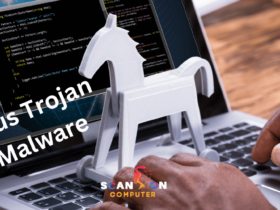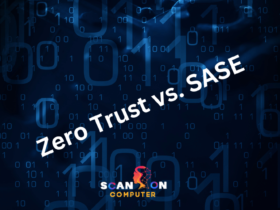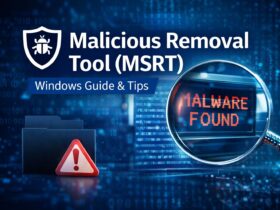Bring Your Own Device (BYOD) offers employees numerous advantages by enabling them to utilize familiar technology tools that increase productivity while saving companies money by eliminating the need for purchasing new devices.
Security should always be top of mind for any device policy. Employees must understand the potential threats and how to safeguard their data, while companies should also schedule regular back ups of all information stored.
What is Bring Your Own Device?
BYOD allows companies to save both time and money by using devices already owned by employees to access company systems and data – while giving employees the flexibility of working from anywhere at any time. It gives companies more money savings while giving employees greater flexibility of working from anywhere at any time!
Companies offering Bring Your Own Device programs (BYOD) allow employees to utilize personal devices like mobile phones, laptops and tablets as part of the company’s network and systems – including apps used for work-related tasks as well as files that may contain sensitive or confidential data.
Employees can utilize personal devices for eLearning courses and training programs, providing them with a means to learn in a manner most suitable to them – which in turn increases productivity and can result in greater effectiveness for the employee.
BYOD Definition
BYOD policies allow employees to use personal devices like smartphones and tablet PCs for work-related activities, potentially saving companies money while increasing employee productivity.
However, it also poses security risks; employees’ private devices may not be properly secured against malware attacks and data breaches. In addition, bring-your-own-device policies often require employees to sign agreements regarding confidentiality and privacy issues that can cause tensions between employer and employee.
Although BYOD models provide numerous advantages for both businesses and employees, it’s essential to recognize its associated challenges. To combat them, organisations should establish clear policies which detail acceptable use of personal devices while making sure that they contain necessary software/hardware solutions.
Additionally, employees should receive regular training on how to properly use their personal devices for work purposes in order to reduce the risk of their device being misplaced or stolen, which could expose sensitive company information to third parties.
The Pros and Cons to a BYOD policy
BYOD policies can be an excellent way to save money, boost productivity and offer employees their preferred devices at work. But it is crucial that businesses understand potential risks and how best to mitigate them so that their business remains protected.
Benefits of BYOD programs for companies include cost savings and reduced IT administrative costs, as employees no longer must purchase and provision devices themselves. Furthermore, employees tend to update their personal devices with the latest technologies and security patches more regularly, leading to enhanced performance and productivity at work.
BYOD policies also pose the threat of data breaches as employees’ personal devices may introduce vulnerabilities into company networks – an especially alarming complication when these have been compromised with malware or other forms of cybercrime.
Finally, it is essential to create a BYOD policy with clear employee responsibilities outlined, including what constitutes acceptable use and any possible actions taken if an employee violates these policies. It’s also critical to educate employees on cybersecurity best practices such as regularly updating device software updates, requiring two-factor authentication and using strong passwords.
Why is BYOD important?
BYOD policies can be invaluable to a business as they allow employees to use devices of their choosing, which in turn increases productivity and job satisfaction while cutting down costs associated with purchasing and maintaining company devices.
Implementing a Bring Your Own Device program may create an initial surge of support requests and calls from employees, so clear communication and training are crucial for its successful execution. A good BYOD plan should also incorporate security measures like encryption or remote wiping devices which access sensitive information.
Overall, BYOD policies are an ideal solution for small to mid-sized businesses that can deliver cost savings and increased productivity. However, success requires strong commitment from all stakeholders involved – particularly IT.
How does BYOD work?
BYOD can lower employee mobile phone and laptop hardware costs while saving companies money on software and maintenance expenses. Furthermore, this model may offer other employee benefits such as reimbursement of cell data plans and insurance coverage in case any devices are lost or stolen.
BYOD can boost productivity and employee satisfaction, as employees feel more at home using technology they’re familiar with. Furthermore, personal devices often come equipped with the latest technological features, giving an employee a superior experience than outdated corporate equipment.
BYOD can also allow employees to work from any location at any time – increasing flexibility and mobility in the workplace. Furthermore, BYOD makes collaboration simpler between colleagues and clients easier as employees can quickly access documents or other files from their personal devices. While policies surrounding BYOD may be complex to implement successfully in business settings, their popularity has become increasing widespread over time; to ensure its success you must establish clear guidelines and procedures.
What are the risks of BYOD?
BYOD programs can be an effective way for businesses to reduce costs, improve productivity and boost employee satisfaction; however, they come with certain risks which should be considered carefully before moving forward with them.
Security remains the paramount risk with BYOD devices, as these often less secure than corporate-owned devices can present hackers with an attack surface for breaches. Employees could share these devices with family or use public wireless networks at coffee shops; potentially giving third parties access to confidential data and applications that otherwise remain unsecured.
To reduce these risks, companies should require their employees to install mobile device management software on all work-related devices and set a remote wipe feature. They should train employees on proper security procedures and implement policies requiring two-factor authentication for all business applications. Furthermore, companies should scan BYOD devices regularly for malware or security threats and ensure all company information is deleted upon leaving an employee’s employment, thus decreasing risks related to sensitive or confidential data being stolen by former colleagues who wish to return it later.
What are the potential BYOD risks?
One of the major risks of BYOD is leaving company data open to attack by employees’ personal devices that may contain security holes that increase hackers’ attack surface when connecting to risky networks or downloading malware onto them. Furthermore, should one of these BYOD devices become lost or stolen it could expose sensitive data to unintended third parties.
BYOD can also present difficulties from an IT perspective. When compared with managing identical company laptops and mobile devices, supporting individual pieces can become more complicated requiring IT departments to create unique solutions for various devices and operating systems resulting in more work for their staff.
BYOD can also cause confusion between personal and professional lives for employees who use their own phones to access company email or files – as their use could potentially compromise them and send in malicious software or PDF documents from unknown sources into the corporate network.
Final Thoughts
Provide each employee with their own device can be expensive and challenging to manage, while keeping track of all the various types of devices used at work can also be daunting. BYOD helps reduce hardware costs and allows employees to access work they need using devices they already possess and are familiar with.
However, it is essential to keep in mind that BYOD may also pose security risks. Any device used for business purposes falls outside the control of the company and could potentially expose sensitive personal data – although having a robust BYOD management solution in place could help lessen these security threats.
No matter whether an agency adopts a BYOD program or not, it is crucial for staff members to have clear communications on how they should handle company data on personal devices owned by staff members. This is especially crucial in MSP environments where any security breach caused by employee-owned devices could damage customer relations and jeopardize reputation.














Leave a Reply
View Comments